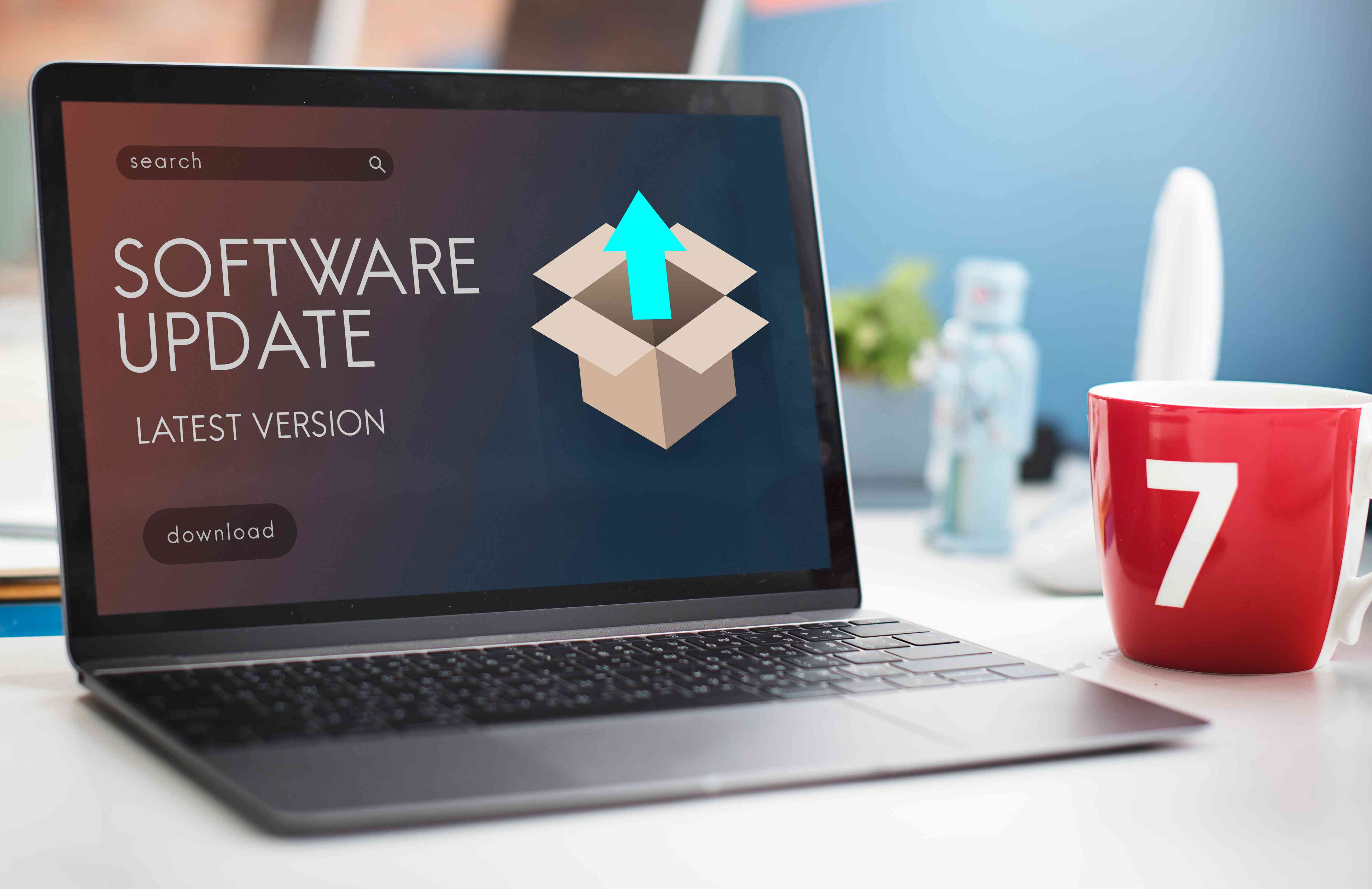When it comes to digital growth, the choice between a custom mobile app and a template-based solution can be overwhelming. With custom mobile app development, you get a solution designed specifically for your business, giving you full control over features, design, and user experience.
This guide explores everything you need to know about custom mobile apps—from when it’s the right choice to costs, features, and long-term benefits. Whether you’re looking to manage your app post-launch or select the right developer in Malaysia, we’ll help you make an informed choice for your business.
1. Understanding Custom vs. Template Apps

When you’re planning an app for your business, the big decision often boils down to custom mobile apps versus template-based apps. While templates offer a quicker, budget-friendly start, custom apps provide a unique design and functionality tailored to your specific needs.
Custom Mobile Apps: A Personalised Experience
Custom mobile apps allow you to design every element, from layout to functionality, exactly how you want it. This personalised approach means your app reflects your brand and caters to your specific audience, making it an extension of your business rather than a generic solution. While custom development takes more time and budget, it offers flexibility and a unique user experience that can make your business stand out.
Template-Based Apps: Quick and Cost-Effective
Template apps come with pre-built designs and features, making them easy to deploy at a low cost. They’re ideal for startups with a limited budget who need an app fast. But with a template, you’ll need to compromise on uniqueness and features, which might not align with your business’s goals.
The Flexibility Factor
With a custom app, you’re free to add or remove features as your business evolves. This adaptability is especially beneficial for fast-growing businesses in Malaysia, like food delivery or e-commerce startups, that need to expand their app functionality over time.
Scalability for Long-Term Growth
Custom apps offer better scalability than templates, supporting business growth without performance issues. With a custom app, you can seamlessly add new features as your business grows. Scalability is essential for business mobile apps in Malaysia, aligning with the ambitious expansion plans of local businesses.
Security and Support
Custom mobile apps provide enhanced security and robust support compared to template-based apps. With custom apps, you control data protection, creating a safer environment for sensitive information. Plus, support is tailored to your specific needs, making troubleshooting efficient and personalised for your business.
2. When to Choose Custom Development

Sometimes, choosing a custom mobile app over a template is the best move for your business. In this section, we’ll look at specific situations where custom app development can provide a strong advantage over pre-built templates.
When Your Business Requires Unique Features
If your app needs unique functionalities, such as real-time tracking for delivery and automatic weighing for ERP, custom development is the way to go. Custom apps let you add complex features that align with your business model, providing flexibility to cater to your audience. A Malaysian software development company like Zoomo Tech can craft custom mobile app solutions tailored to your specific business needs.
High User Engagement
Custom apps are great for businesses that rely on user engagement, such as e-commerce or fitness apps. Customisation allows for features like personalised recommendations or notifications, which can boost engagement and improve customer loyalty, helping you connect with users more effectively than with a template app.
Integrating with Existing Systems
If your app needs to integrate with existing software systems, like a CRM or ERP, a custom app is a much smoother choice. Template apps might lack the flexibility to seamlessly integrate with your business tools, whereas custom solutions can be tailored for complete integration, enhancing overall efficiency.
Branding and User Experience
A custom mobile app allows you to create a design that’s consistent with your brand, from logo placement to the colours used throughout the app. In Malaysia, where brand identity can set you apart in a competitive market, this level of control is valuable.
Long-Term Investment
While custom apps may have a higher initial cost, they’re a worthwhile long-term investment if you’re committed to growing your app as part of your business. A custom solution can evolve with your business and maintain relevance, avoiding the limitations of a template.
3. Tailoring Features to Your Business Needs

A custom mobile app is the perfect opportunity to include features that reflect the unique operations and personality of your business. With the flexibility of custom development, you can prioritise features that meet the needs of your users and align with your business goals.
Adding Value with Core Features
Identify the core features that add the most value to your users. For instance, an e-commerce app might need a user-friendly shopping cart and secure payment options, while a health app might focus on daily health tracking. Custom apps let you choose and refine the functionalities that matter most to your audience.
Simplifying the User Journey
A clear, efficient user journey can make all the difference. With a custom app, you can organise features and navigation exactly as you like, minimising friction for the user. A simple, user-friendly mobile app boosts user satisfaction and encourages them to keep using your app. Streamlined navigation and intuitive design make it easy for users to achieve their goals, enhancing loyalty and engagement.
Real-Time Analytics and Reporting
Having access to real-time data can help you make quick adjustments to improve app performance and meet user needs. Custom apps allow you to integrate powerful analytics tools like Google Analytic that offer detailed insights into user behaviour, giving you an edge in understanding your audience.
4. Expected Costs for Custom Development

When considering a custom mobile app, understanding the associated costs helps in budgeting and planning. The total expense varies based on complexity, features, and the expertise of the development team.
Breakdown of Development Costs
The costs of custom development can generally be divided into planning, design, development, and testing phases. Basic apps may cost less due to simpler features, while more complex apps with advanced functionality require higher investment. In Malaysia, a reputable developer like Zoomo Tech can guide you through each phase.
Factors That Affect Pricing
Custom app pricing depends on various factors: complexity, type of platform (Android, iOS, or both), and integration requirements. A simple appointment booking app, for example, will cost significantly less than an e-commerce app with a secure payment gateway and product catalog.
Maintenance and Update Costs
After launch, ongoing maintenance and updates are essential. These costs may include bug fixes, system upgrades, and feature enhancements. Regular maintenance ensures a smooth user experience and maximises the app’s lifespan.
Budgeting Tips
If your budget is tight, start with a minimum viable product (MVP) to get essential features up and running. You can gradually add more functionalities, making it easier to manage costs and assess user response along the way.
5. Long-Term Benefits of Custom Solutions

While custom app development requires a significant investment, it provides substantial benefits over time. Let’s explore why businesses in Malaysia and Singapore choose custom apps to stay competitive and achieve long-term goals.
Tailored to Business Growth
As your business evolves, your app can adapt with you. Unlike template apps, custom apps adapt as your business grows, accommodating new features and scaling with ease. Template apps often lack flexibility for future changes, so if upgrades are needed, you might face a complete rebuild rather than a quick modification.
Improved User Engagement
Custom apps are designed with your specific audience in mind, resulting in a better user experience that leads to higher engagement and retention. With custom apps, better user engagement translates directly into higher sales and profit, enhancing your business’s growth potential. Engaged users are more likely to make repeat purchases and recommend your app, boosting both revenue and brand loyalty over time.
Security and Data Protection
With custom development, you can implement robust security measures. For instance, if your business handles sensitive information, custom security features ensure compliance with local regulations and protect user data. Enhanced data protection helps prevent data leaks, safeguarding your business from potential lawsuits and costly legal issues. A secure app builds stronger trust with customers, reinforcing loyalty and showing your commitment to their privacy and security.
Integration with Advanced Technologies
A custom app allows you to integrate cutting-edge tech like AI or IoT to stay competitive. This adaptability can be essential for companies in fast-paced industries like e-commerce or logistics.
Higher Return on Investment
Although initial costs are higher, the increased user satisfaction, improved productivity, and brand reputation often lead to a high ROI. Businesses in Malaysia, like Zoomo Tech clients, find that custom apps ultimately offer a rewarding payback over time.
6. Managing Your App Post-Development

Launching a custom app is just the beginning. To keep it running smoothly and relevant to users, effective post-development management is essential.
Regular Maintenance
Regular updates ensure your app stays functional and compatible with new OS releases. This prevents disruptions and keeps the user experience seamless, which is critical for apps that handle transactions or time-sensitive data.
Customer Support and Feedback
Addressing user feedback is crucial for growth. By listening to customers and responding to their needs, you can prioritise updates that enhance satisfaction and improve the app’s usability.
Monitoring App Performance
Analysing metrics like user engagement, screen flow, and drop-off points helps you understand how users interact with the app. All those useful analytics help you understand what users think and what they expect from the app. Tools like Google Analytics and Firebase provide insights on user behaviour, helping you tailor the app to meet user demands and improve satisfaction.
Security Updates
As security threats evolve, keeping your app secure requires constant vigilance. Regular security updates protect user data and ensure compliance with local regulations, particularly for industries handling personal information.
Content Refresh and Feature Expansion
Keeping the content fresh and adding new features periodically helps keep users engaged. Whether it’s seasonal promotions or a new loyalty program, refreshing your app content encourages users to return.
7. Measuring ROI of Custom Apps

Measuring the return on investment (ROI) is essential to understand how well your custom app supports your business goals. Here’s how to analyse your app’s effectiveness in real terms.
Tracking Key Performance Indicators (KPIs)
Identify KPIs like user acquisition cost, average session duration, and customer retention rate. Monitoring these metrics helps determine if the app is meeting your business objectives and provides insight into areas for improvement.
Calculating Customer Lifetime Value (CLV)
CLV measures the long-term value of each customer who uses your app. High engagement and repeat usage indicate that the app is successful in fostering loyalty and encouraging spending, essential for apps in retail or F&B.
Analysing Conversion Rates
Tracking conversion rates—from downloads to purchases—helps you understand user engagement and the app’s impact on sales. Conversion optimisation can reveal whether your app’s design and features are working effectively.
Monitoring Retention and Engagement Rates
High retention and engagement rates suggest that your app meets user expectations, contributing to a higher ROI. In Malaysia, engagement rates are particularly relevant as users are quick to adopt apps that offer value and ease.
If the conversion rate or engagement rate is low, it’s essential to take action and improve user experience. By analysing engagement, you can identify areas to optimise, ensuring your app better meets users’ needs and drives stronger results.
Regularly Reviewing Revenue Growth
Calculate revenue growth from the app and compare it to initial costs. Over time, a successful app should show consistent revenue increases, validating the initial investment and ongoing improvements.
8. Selecting the Right Mobile App Developer in Malaysia

Selecting the right development team is crucial to realising your vision. Here’s a guide to finding a reliable partner who understands your business needs.
Assessing Their Portfolio and Experience
Reviewing a developer’s portfolio shows their experience level and previous project quality. Look for examples similar to your project, as developers familiar with your industry, like Zoomo Tech, can provide valuable insights and professional advice to you.
Checking Technical Expertise
Ensure the developer has the technical expertise for the features you need. From e-commerce to GPS integration, the right skills mean a smoother project. Companies in Malaysia and Singapore should prioritise developers experienced in multi-platform and cross-functional apps.
Evaluating Communication and Transparency
A smooth development process requires clear communication. Transparent developers keep you updated on project progress, address questions promptly, and help avoid misunderstandings, which is especially important for first-time app clients.
Understanding Post-Launch Support
Your app will need updates and improvements after launch. Choose a developer who offers post-launch support, ensuring the app remains functional, secure, and aligned with business growth.
Discussing Cost and Timelines Upfront
To avoid surprises, agree on budget and timeline expectations early on. Reputable developers always provide detailed estimates and timelines to keep projects on track, making it easier for you to plan and budget effectively. Still unsure how to choose the right mobile app developer? Contact us for more advice.
Conclusion
Custom mobile apps can transform your business by improving user engagement, enhancing productivity, and offering tailored solutions. From analysing your needs, exploring the benefits, understanding development costs, and post-launch support to measuring ROI, this guide covered everything you need to decide if a custom mobile app fits your goals.
At Zoomo Tech, we’re here to make your custom mobile app journey smooth and rewarding. Our team guides you from concept to launch, ensuring your app aligns perfectly with your business needs. Reach out to us for expert advice and affordable, high-quality development crafted just for you!




